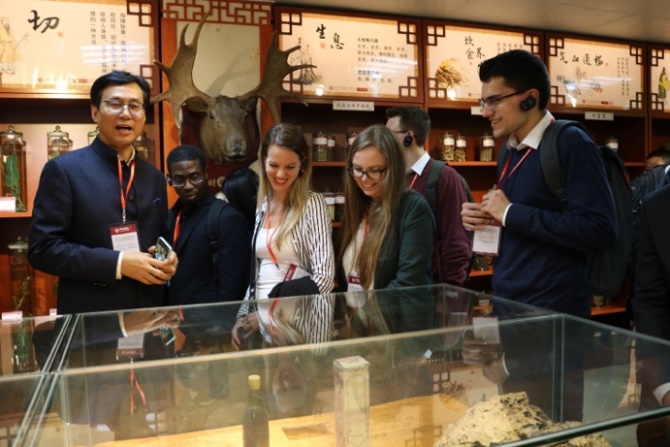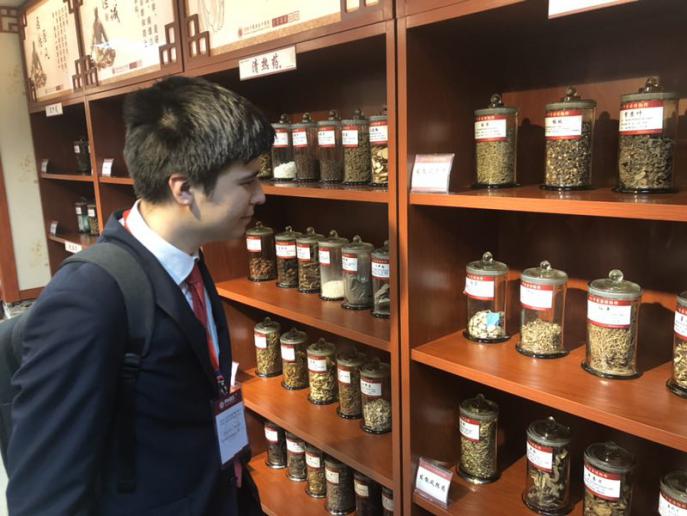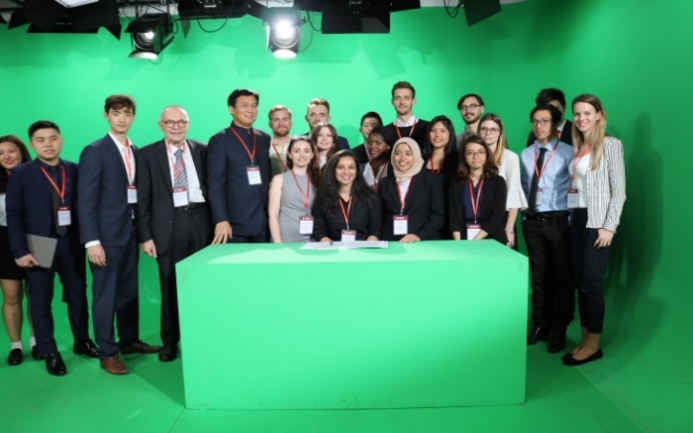A group of 39 students from Peking University HSBC Business School (PHBS) visited the Longgang District of Shenzhen on February 27. The outing was a part of the “China Studies” course taught by Professor Huang Haifeng. Visiting Professor Gerhard Stahl, the former Secretary General of the European Committee also accompanied the team on their many stops around the district.
Longgang Museum of Hakka Culture

The first stop was the Longgang Museum of Hakka Culture. Before becoming a museum for educating visitors on Hakka culture and history, the building was a well-preserved Hakka residence. The museum is located in a small village once inhabited by one large family. The location provides deeper insight into Hakka style homes, ancient artifacts, and culture.
During the tour, students gained understanding of Hakka wedding customs, origins of Kylin/Lion dancing, dragon boat racing, the daily life in the compound, ancient crafting and farming techniques. After having been shown around the exhibitions, the students developed a deeper appreciation for Hakka culture. The next stop on the journey was the Shenzhen Chinese Medicine Museum.
Shenzhen Traditional Chinese Medicine Museum

The Shenzhen Traditional Chinese Medicine Museum, located in Huang Chong, preserves and spreads knowledge of traditional Chinese medicinal practices. Students were introduced to several aspects of traditional Chinese medicine, which incorporates many different techniques such as herbs, diet, acupuncture, cupping and
qigong to prevent or treat health problems. During the tour, the group had the opportunity to visit different halls dedicated to herbal medicine. They learned about practices utilizing common plants, such as Astragalus, Ginkgo biloa and Ginges. They also saw medicine made from minerals and animal byproducts.
Learning about traditional Chinese medicine provided students with a deeper knowledge of Chinese culture, specifically how ancient philosophy of Taoism played a significant role in society as early as 2,500 years ago. After the brief introduction to Chinese traditional medicine, the students were soon on their way to the Shenzhen Media Group.
Longgang Radio and Television Center

Longgang Radio and Television Center of Shenzhen Media Group was the last stop of the expedition. As a company that has been ranked among the top nine provincial satellite TV stations in China, it presented impressive human potential and very extensive technical facilities. Thanks to the courtesy of the host, Ms. Zhang Haiyan, students even had the opportunity to closely observe the work of radio presenters during live broadcasts. Also, recording studios for television programs were open to the students.
Subsequently, Professor Huang, Professor Stahl, class-monitor Kim Wansong, and group-leader Niels Sharman were asked for a short interview which later appeared on Chinese television. The questions concerned the perception of the Chinese economy, as well as the first impressions of foreign students coming to China.
The international students had the opportunity to experience what “learning by doing” really means, which is one of the core takeaway messages of the China Studies course.
Authors: Maciej Mitka (Poland); Luigi Caputo (Italy); Petra Lancuchova (Czech Republic)
Photos by: Siddhant Khema (India)